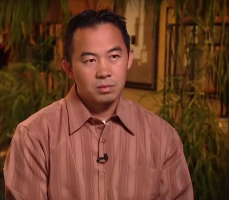
— The saga of Toyota owner Koua Fong Lee continues in court as Toyota has asked an appeals court to overrule and get rid of an $11.4 million award to occupants involved in an alleged unintended acceleration crash.
Koua Fong Lee was driving home from a church function with his pregnant wife, child, and his father and brother, when the 1996 Toyota Camry rear-ended a 1995 Oldsmobile Ciera, killing two people and leaving a six-year-old girl a quadriplegic.
Javis Trice-Adams and his son, Javis Adams, Jr. both died in the crash. Another passenger, 6-year-old Devyn Bolton, was paralyzed in the crash and died 16 months later, and Ciera passengers Jassmine Adams and Quincy Ray Adams were seriously injured.
Koua Fong Lee was sentenced to eight years in prison for criminal vehicular homicide, all while he kept insisting he tried to stop the Camry by pumping the brakes, but the car kept accelerating.
After sitting in a cell for more than two years, Lee's case took a new turn when Toyota started recalling cars for problems related to unintended acceleration events. Based on the recalls, Lee was released from prison in 2010 after prosecutors dismissed the charges.
Mr. Lee and the families of the crash victims filed a lawsuit against Toyota claiming throttle cable problems caused the Camry to accelerate out of control hit the other vehicle. But Toyota has always argued there was nothing wrong with the Camry and the crash occurred only because Lee panicked and accidentally put his foot on the gas pedal instead of the brake pedal.
The six-man, six-woman jury heard from experts on both sides and spent four days deliberating following the three-week trial. According to court documents, jurors could not originally reach a unanimous verdict and were told by U.S. District Court Judge Ann Montgomery to try again. Judge Montgomery told each juror they needed to reach a verdict as long as they could do it without violating their conscience.
In the end, Toyota was ordered to pay $11,4 million, but Lee wasn't completely cleared during the trial because jurors did find him 40 percent liable, leaving Toyota 60 percent liable for the crash.
Toyota demanded a new trial and declared there was no evidence a design defect existed in the Camry Mr. Lee was driving, but in June 2015, Judge Ann Montgomery said the jury did its job and the verdict did not result in a miscarriage of justice warranting a new trial.
Toyota then appealed to the 8th U.S. Circuit Court of Appeals in St. Paul, Minnesota, telling the court the award to victims should be tossed. The automaker says the federal judge who heard the original case should not have allowed testimony from other Toyota Camry drivers to be used as evidence concerning alleged unintended acceleration problems in Lee's case.
Attorneys for Toyota say even if those Camry owners did experience acceleration problems, there is no proof the problem was related to throttle cables.
Without proof that stuck throttle cables caused problems for the Camry owners who testified, Toyota says their testimony should be irrelevant in Lee's case.
CarComplaints.com will update our website once the 8th U.S. Circuit Court of Appeals makes its ruling.




